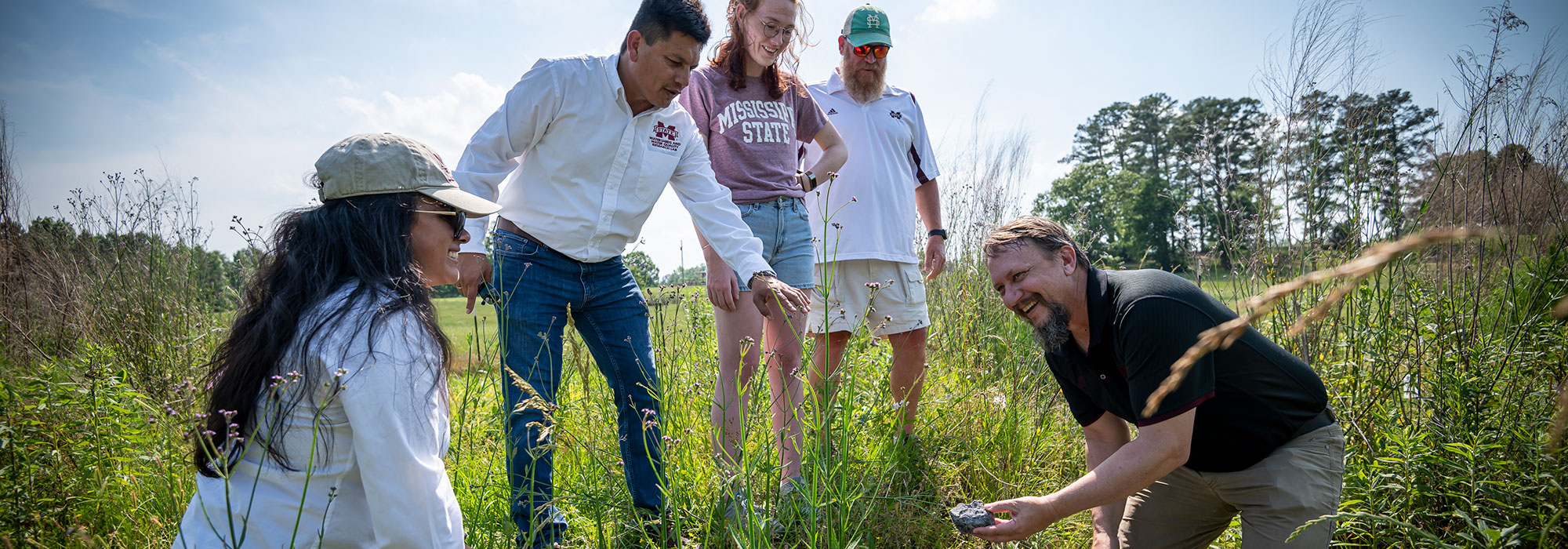Mississippi has unique regions of soil and climate. The Mississippi Agricultural and Forestry Experiment Station's 16 branch locations serve all regions of the state. Research addresses issues important and relevant to Mississippi farmers, industry, communities and families. MAFES discoveries improve plant, animal, and food production systems to enhance commodity production and conserve the environment for the benefit of all people.
MAFES Research Priorities
Plant Production Systems
Development of production systems that optimize yield, energy efficiency, profitability, and environmental stewardship
- Commodity Cropping systems
- Specialty Cropping systems
- Fruits and Vegetables
- Turf grass and Ornamentals
- Water Quality and Quantity Management
- Climate Change Adaptation/Mitigation
- Agricultural Policy, Economics and Risk Management
- Biotechnology, Genomics, and Proteomics
Animal Production Systems
Development of efficient, cost-effective, and humane animal production systems that optimize environmental stewardship.
- Animal Nutrition
- Herd, Flock, and Pond Management Systems
- Reproductive and Stress Physiology
- Animal Breeding and Genetics
- Biotechnology and Genomics
- Agricultural Policy, Economics, and Risk Management
- Waste management and Water Quality
Food Safety and Quality
Development of food production, harvesting, processing, packaging, and preparation systems that ensure high quality, nutritious and safe food supplies.
- Quality Assurance in Production, Processing and Packaging
- Prevention/Detection of Food-borne Pathogens
- Extending Shelf-life and Protecting Nutritional Content
Sustainable Energy
Development of enhanced feedstocks, conversion technologies, harvesting and transportation systems and energy conservation practices that increase profitability and contribute to energy independence.
- Energy Efficient Agricultural Systems
- Biomass-to-Energy Conversion Technologies
- Biomass Feedstock Development and Production
- Biomass Harvesting and Transportation Systems
- Economics and Life-cycle Analyses of Bio-energy Systems
Human Health and Well-being
Integrative research addressing nutrition, dietetics, and human behaviors that promote physical and mental health; prevent disease, injury, and disability; and enhance quality of life for Mississippi residents.
- Access to Affordable, Nutritious, and Nutracuetical foods
- Obesity and Diet-related Diseases Prevention
- Child, Youth, and Family Development
- Healthy Lifestyles
- Science to Protect Human Health
Sustainable Communities
Management plans and tools to allow communities to develop economic systems for prosperity while protecting the surrounding ecosystem.
- Water Management Tools and Best Management Practices
- Natural Resource Enterprises and Agritourism
- Community Supported Agricultural Enterprises
- Disaster Preparedness and Management
- Community Growth Dynamics

